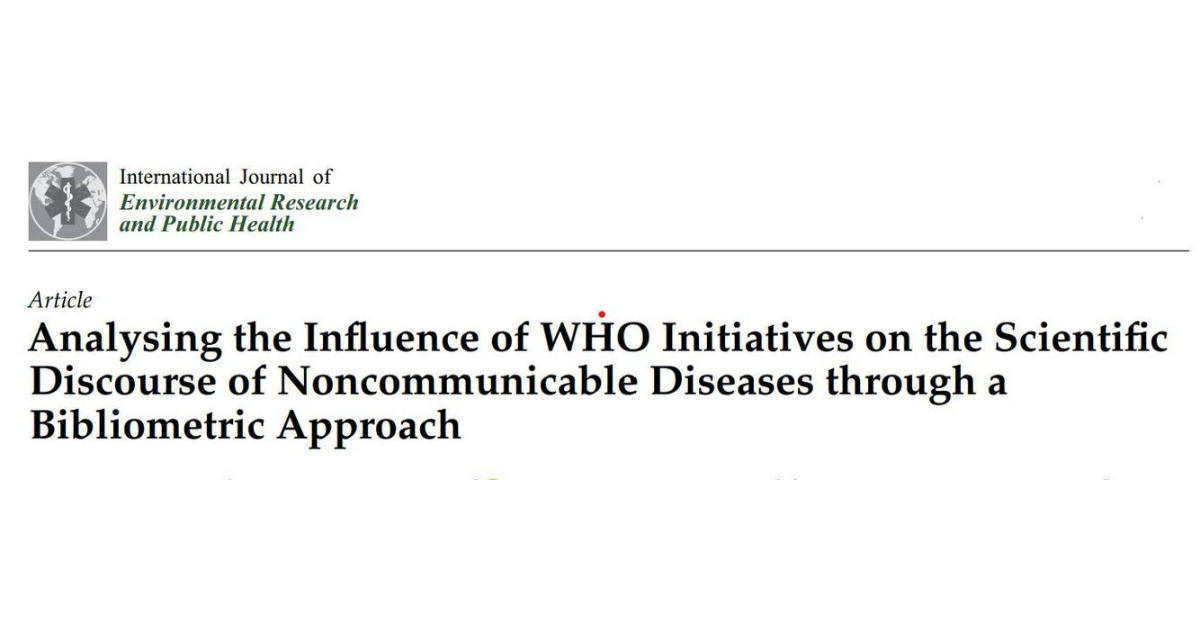
Is the World Health Organization influencing the scientific discourse on non-communicable diseases (e.g. diabetes)? How do global diplomacy and science view these diseases?
The answers to these questions are sought in this article by CEI-Iscte researcher Cátia Miriam Costa. The article was published in the International Journal of Environmental Research and Public Health, in co-authorship with Ana Teresa Santos, Luísa Delgado-Márquez and Raquel Maria Banheiro.
Abstract
Noncommunicable diseases (NCDs) present a major public health challenge, prompting their inclusion in the United Nations’ 2030 Agenda for Sustainable Development. In response, the World Health Organization (WHO) has implemented various initiatives, including a comprehensive monitoring framework with global targets and indicators. However, the extent to which these initiatives have shaped the scientific discourse remains unclear. This article addresses this knowledge gap through a two-fold approach. Firstly, a bibliometric analysis of 14,187 studies spanning over 60 years is conducted, identifying key contributors and trends. Secondly, the content analysis compares these trends to the goals established by the WHO. The findings indicate that the WHO initiatives have accelerated scientific research, and elevated global targets and indicators as central themes in scholarly discussions, since 2011. This study takes an innovative approach that contributes to the advancement of knowledge in this field, by providing valuable insights into the impact of WHO initiatives on the scientific debate surrounding NCDs, and offering guidance for policymakers, researchers, and stakeholders engaged in combating these diseases.
Keywords: non-communicable diseases; bibliometrics; discourse analysis; United Nations; World Health Organization; health diplomacy